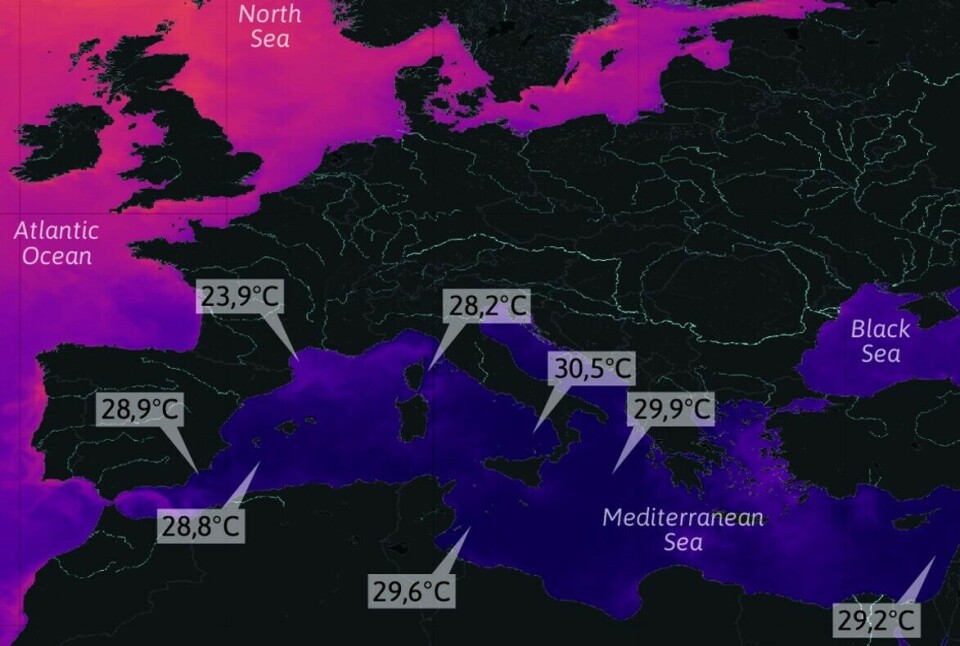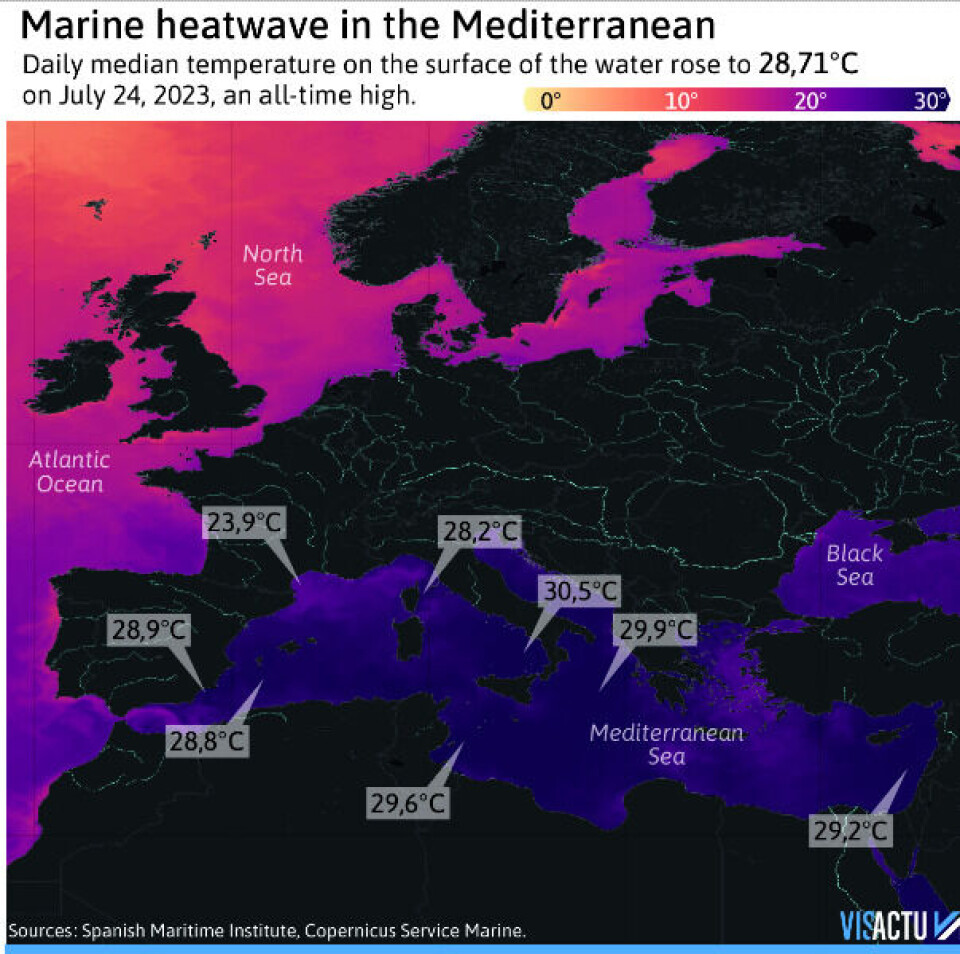-
Dordogne and Corrèze on alert for flooding on Easter Sunday and Monday
Persistent rain and thunderstorms have caused rivers to swell
-
Approval of roadside noise cameras in France will see fines issued against loud vehicles
The devices known as meduses already exist in several cities but so far have only been ‘instructional’
-
White storks make strong return in France via nest ‘platforms’ and clipped wings
The Ligue pour la Protection des Oiseaux shares the conservation challenges in saving these birds from extinction
Concern amid record temperatures in the Mediterranean Sea
The average surface temperature hit 28.71C around July 24, the highest since 1982

The temperature of the Mediterranean Sea has hit a record high this week.
Its average surface temperature hit 28.71C around July 24, beating the previous record of 28.25C set twenty years ago.
Researchers at the Barcelona-based Marine Sciences Institute said it was the highest temperature since 1982.
The temperature was measured using satellite data from Copernicus, the earth observation arm of the European Union’s space programme. Copernicus has yet to verify the record temperature.

Picture credit: Spanish Maritime Institute, Copernicus Service Marine / Visactu
Delphine Thibault, an associate professor in oceanography at Aix-Marseille University, told The Connexion that sea temperatures of 28C had been recorded recently near Marseille.
The waters near Menton, meanwhile, hit 29.47C on July 21, she added.
Previous article: Heatwave-hit south of France set for respite by the weekend
Previous article: Southern France on heatwave alert after temperature records broken
Dr Thibault went on to discuss the dangers of a warmer Mediterranean Sea.
“85% of red gorgonian coral died last year because of the heat,” she said. A similar scenario played out in 1999, she added.
“28 degrees is high. We need to see if it is on track to be sustained for weeks,” said Dr Thibault.
But she clarified it is much worse if such surface temperatures are replicated at depths of 30 or 40 metres, as was the case last year.
Dr Thibault added warmer temperatures could bring creatures that usually inhabit hotter waters - such as the red lionfish, rabbitfish or the rhopilema nomanica jellyfish - nearer to France. That, she added, could change the entire marine ecosystem.
Read also
Worries over fish and ecosystem as Mediterranean sea set to reach 30C
Temperatures to climb once again in France, breaking seasonal records
























